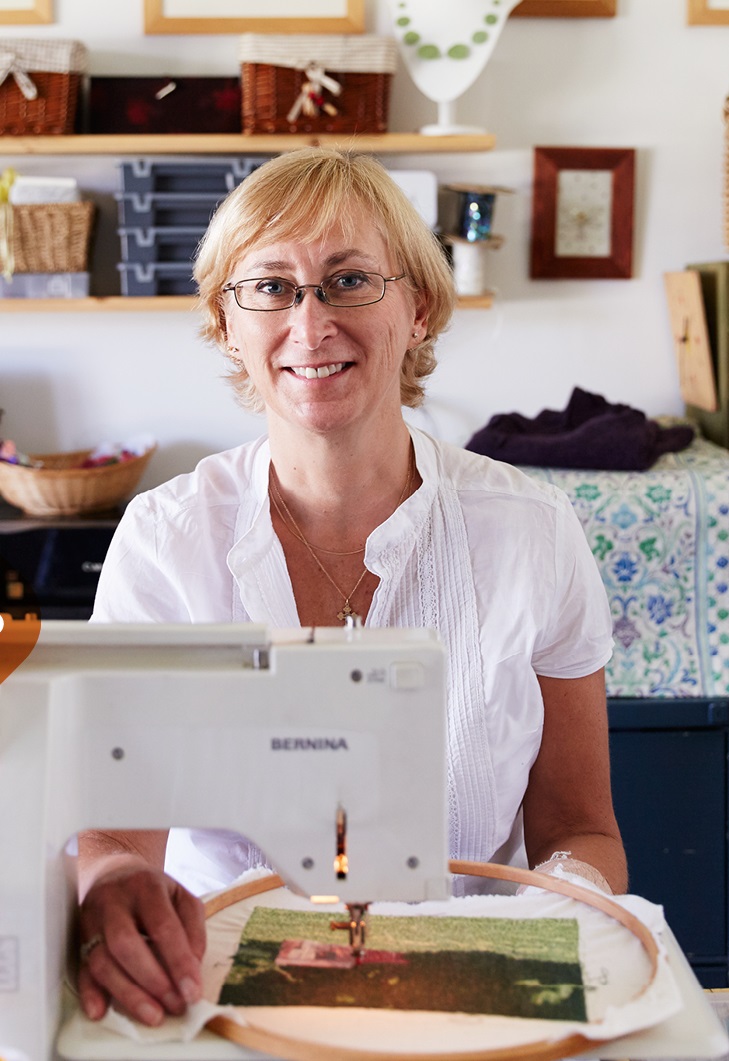What’s it all about?
Slow Stitching is where we step into slow. Using the Log Cabin technique to create pieced backgrounds using precious scraps of cloth allows you to slow down in a hectic world and take pleasure in simple stitches and simple processes.
We will be stitching patchwork blocks using recycled cloth to embed meaning into your piece. This is a slow, whimsical process, which results in a layered textile artwork which is unique to each maker. You will create a 10cm x 10cm patch which could then be used to create a coaster, a sewing book. Create multiple pieces to create a bag, throw or even added to an item of clothing – it’s up to you!
Slow Stitch allows you to take time for yourself to relax and unwind. Using the practice of mindfulness, where you focus your full attention only on the present, experiencing thoughts, feelings, and sensations but not judging them, can reduce stress and physical pain.
What will we cover?
You will learn how simple running stitch can be used for connecting pieces to a background using the Log Cabin patchwork technique. Pick up a needle and thread and lose yourself in this meditative process where simplicity is key.
There is no right or wrong way to approach your project. Relax and unwind whilst experiencing the joy and gratification of being immersed in mindful creativity, hand stitching a work of art. Gain the well-being benefits of mindful creating and crafting.
This class is suitable for both beginners and more experienced sewers. After some needle and thread basics, you will learn to use simple running stitch to create.
Patchwork centres around the “make do and mend” and “waste not, want not” ethos of yesteryear. It is a nod to the generations that came before ours in which reusing and recycling were necessary and admirable. This is not a complicated process which relies on numerous fancy, perfectly executed stitches and fastidious neatness, but rather, it’s about embracing the timeworn nature of our materials, and the individuality of our stitching.
What will you need?
- 13cm x 13cm backing fabric – this could be calico, cotton or linen.
- Repurposed, recycled, inherited, and vintage fabric scraps you may have – cotton, linen and/or silk work well – you will need approximately 10 to 12 small pieces from 2-4cm wide x 3-10cm long. You could chose to use pattern or plain.
- Sewing thread to match your background fabric.
- Personal sewing kit (scissors, pins and needles).
- Your imagination and enthusiasm.
 Who will be teaching?
Who will be teaching?
Tamara Russell is a textile artist specialising in free machine embroidery, hand stitching and mending based in Melbourne. She has been making her clothes and mending since a teenager. Loving to personalise her wardrobe with visible mending and embellishment. Tamara enjoys teaching various forms of mending and embroidery. She also happily accepts commissions to mend your old favourites. Visit her website or follow her on Instagram.